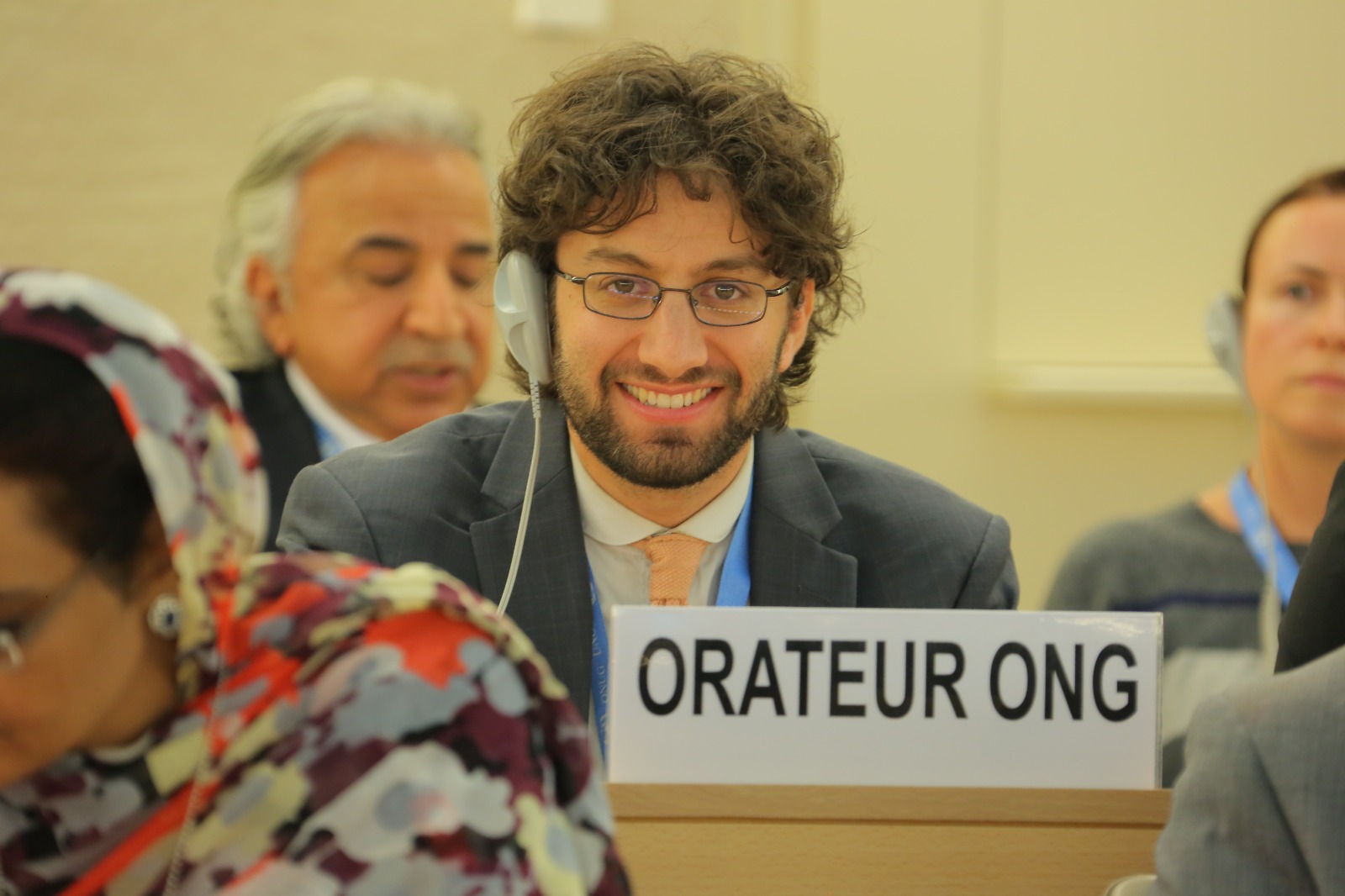On 14 September, at the 36th session of the Human Rights Council, ADHRB’s Advocacy Associate delivered an oral intervention during the Panel on Unilateral Coercive Measures. In the intervention, Pry raised concerns over the Saudi-led Coalition’s air and sea blockade of Yemen and airstrikes on civilians and civilian infrastructure. Please continue reading for the full text of the intervention, or click here for a PDF.
Mr. President,
IDO and Americans for Democracy and Human Rights in Bahrain (ADHRB) would like to thank the distinguished panel for their remarks. We echo the conclusions of the report (A/HRC/RES/34/13) and we share its concerns on the negative impact of unilateral coercive measures on human rights, development, international relations, trade, investment and cooperation.
In this context, we feel these impacts are illustrated most clearly by the unilateral coercive measures imposed on Yemen by the Saudi-led Coalition through a total land, air and sea blockade and uninterrupted airstrikes on civilians and civilian infrastructure—likely amounting to war crimes. These measures are currently causing the Yemeni population to be deprived from essential goods, such as food and medicines, and stop them from freely pursue their own economic, social and cultural development.
These measures have further detremental effects beyond the immediate economic and humanitarian impacts. This blockade at its outset interrupted ongoing political dialogue, to the detriment of Yemeni’s self-determination. The blockade’s impact on food and medical transfers has drastic effects on the right to health, and right to life. Finally, the threat to regional stability and greater human displacement has only externalized and exacerbated all of these human rights and humanitarian abuses.
With this in mind, we ask: “While this Council has previously adopted proposals, and is currently renewing considerations for accountability mechanisms for a range of Yemen based human rights abuses, what accountability mechanisms exist–or would you suggest–for addressing such inherently external and multilateral human rights abuses such as unilateral coercive measures?”
Thank you.





